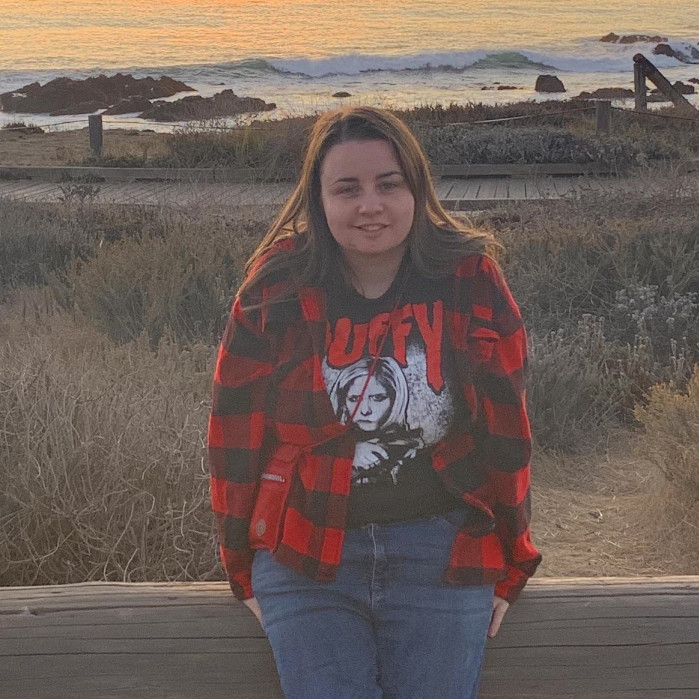J.J. Hale blogs:
I was twenty-nine when I was diagnosed with ADHD. The only reason I went to seek a diagnosis is because a close friend mentioned ADHD to me earlier that year, and instead of dismissing it, I went to read about it, and suddenly everything shifted. I won’t get into the ins and outs of fighting for an assessment because that would take several blog posts in itself, but suffice to say it takes a lot of time, effort, money, and frustration.
So although it was all still relatively new information, it wasn’t a surprise to me when the assessment result came through. It was, however, a surprise to the psychologist assessing me. See, I had twenty-nine years to get really good at hiding all the parts of me that stood out too much. The parts that seemed to annoy other people or made me feel less likeable.
“You don’t move a lot, and you seem to be able to pay attention,” the psychologist said at first.
I mean, I think that’s what she said. I was too busy remembering to nod and listen to actually hear it all. That’s all most people need from a conversation, for you to look like you’re paying attention. Looking at them, reacting appropriately, not fidgeting, not interrupting to say the thing you know you’ll forget by the time they are done talking if you don’t. All the things that make it near impossible for me to actually pay attention.
When the results were printed out from the computerized part of my assessment, she was surprised. Constant micromovements, difficulty focusing for the twenty-minute test, issues with impulse control. It’s easy to fool a person when you’ve spent years studying how people want you to behave—computers, not so much.
Masking had become such an integral part of who I am as a person that I didn’t even realize I was doing it, until I stopped. Until I gave myself the permission to start doing things that came more naturally and started figuring out how to work with my brain instead of constantly fighting against it.
Not long after my assessment, COVID happened. I began working from home full time and moved jobs, and all of those combined meant I could give myself the freedom to do things the way I needed to do them. It wasn’t easy, still isn’t, but I soon realized how much daily energy I had been spending just acting normal.
Daily energy that was much better spent elsewhere—like daydreaming and writing romance novels!
I had always loved to write but never believed I could write a whole book. It seemed impossible. It was impossible when I tried doing it the way people talked about how to do it.
Just write a little every day
Just stick to a routine
Just be neurotypical
That last part isn’t actually a tip, but it should be a content warning to most of those posts. Every time I started writing something, I told myself this was it—this was the time I’d finish it. I could do it if I really wanted to, right?
But inevitably something new and shiny would pop up, or I’d lose motivation, and that was that—I’d stop. So I must not really want it, not like everyone else who can do it.
The thing is, when you stop forcing your brain to do things the typical way and start figuring out what it actually needs, it might actually do what you want. Disclaimer: not always—mine often requires bribes too.
Less than a year after my diagnosis, I had finished my first full manuscript that’s now my debut novel, published with Bold Strokes Books. I didn’t sit and write every day. I didn’t always stick to a routine. I created a variety of rotating systems along with asking for plenty of help and support to keep me on track, but most of all, I didn’t blame or ridicule myself when things didn’t go as planned.
It’s amazing what can happen when you don’t berate your brain for doing its best.
After finishing Truly Wanted, I realized my main character Sam had ADHD. I hadn’t said that in the first draft, I hadn’t done it on purpose, but suddenly it became very important to me to rectify that. Because on-page representation is vital. It had always been important to me to represent sapphic romance in my writing, because I so badly needed to read it growing up. And it was just as important for me to represent neurodiversity.
Who knows how much sooner I might have realized that there was a name for everything I was dealing with if I had picked up one of the many novels I consumed and the main character had ADHD. Who knows how much sooner I could’ve learned to accept myself if I saw ADHD described in the way I experienced it, not just the way it’s been stereotyped.
The only reason I went to seek a diagnosis is because a close friend mentioned ADHD to me earlier that year, and instead of dismissing it, I went to read about it and suddenly everything shifted. Knowledge is power. Positive representation is empowering. That’s why in continuing to write neurodivergent MCs, my hope is that other people learn a little more about themselves and start their journey toward accepting their beautiful, frustrating, messy, brilliant brains exactly as they are too.



